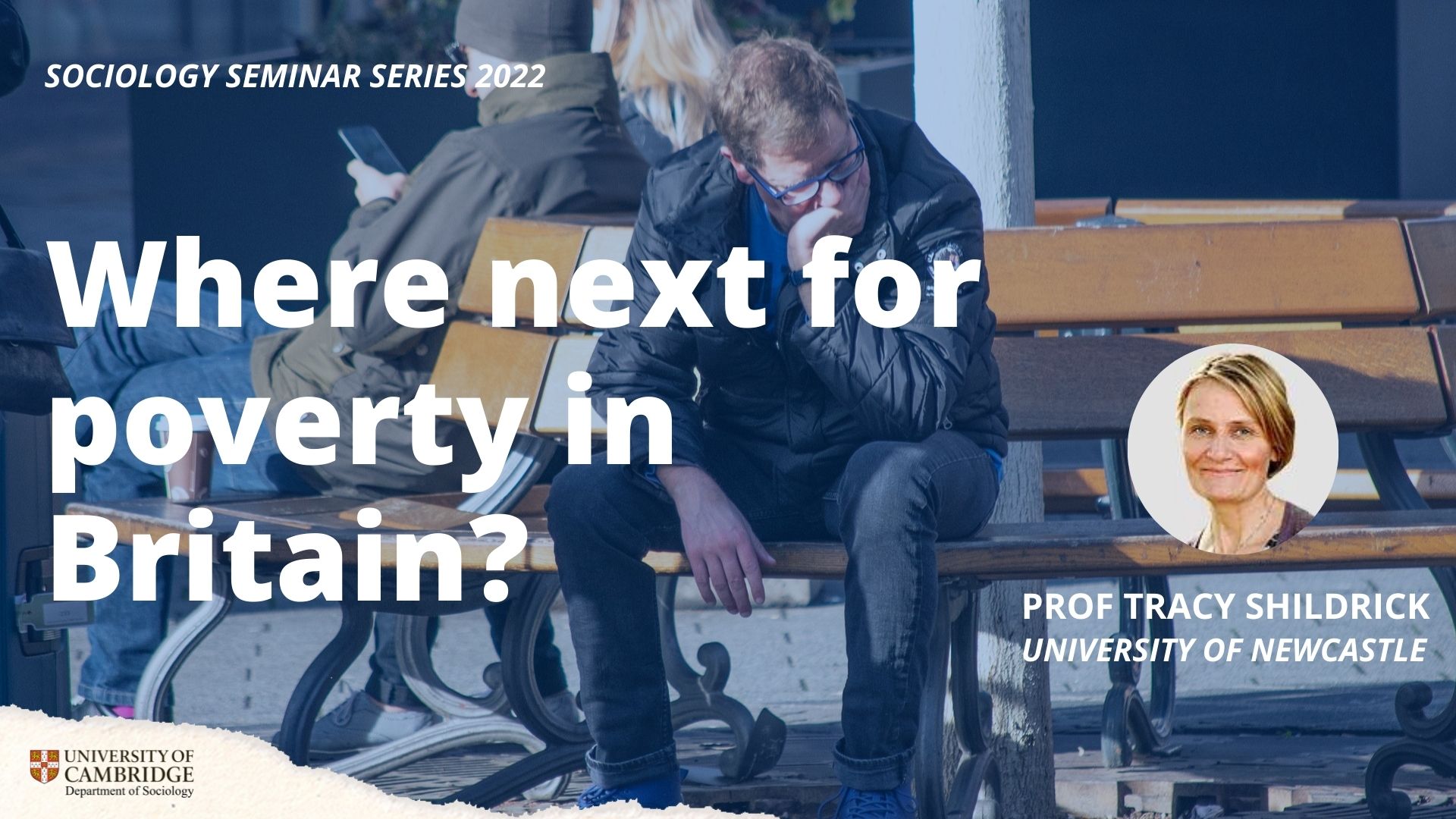Recent years have seen increasing attention around so called ‘left behind’ places and people.
Date: Tue 1 Feb 2022
Time: 12:30-2pm
Link: Members of the University of Cambridge can log in to join this session in Zoom. Please note that this event will be recorded, including questions asked by attendees in the Q&A. The recording will be made available to the public via our YouTube channel.
Abstract
The first part of this talk will outline how poverty and economic inequality has become hard baked into the social and economic fabric of British society to the point that despite widespread affluence and wealth for many, poverty has become a normalised condition for significant swathes of the population. Secondly, the talk will consider how far the COVID-19 pandemic offers up a new lens through which poverty might be viewed. People living in poverty are more likely to catch Covid-19 and to die from it then their more affluent counterparts and the pandemic has also, at least to some degree, exposed how underfunding and privatisation have negatively impacted some of our public services, particularly the NHS. The paper asks how far public debate on poverty has shifted in recent years and questions whether there is a real opportunity for better understanding of the condition that might serve to problematize some of the dominant and widely accepted stereotypes and caricatures of the supposedly ‘undeserving poor’. Finally, the paper wonders about possible futures for both poverty and inequality in Britain, with a particular focus on in-work poverty, the out of work welfare system and public perceptions of the causes and the consequence of poverty.
About the Speaker
Professor Tracy Shildrick is Head of Sociology at the University of Newcastle, which she joined in 2017 after a period at the University of Leeds. Most of Prof Shildrick's research has a focus on young people and youth transitions. Prof Shildrick is also interested in issues around employment, low pay and welfare reform, and has a specific interest in the North East and Teesside.





